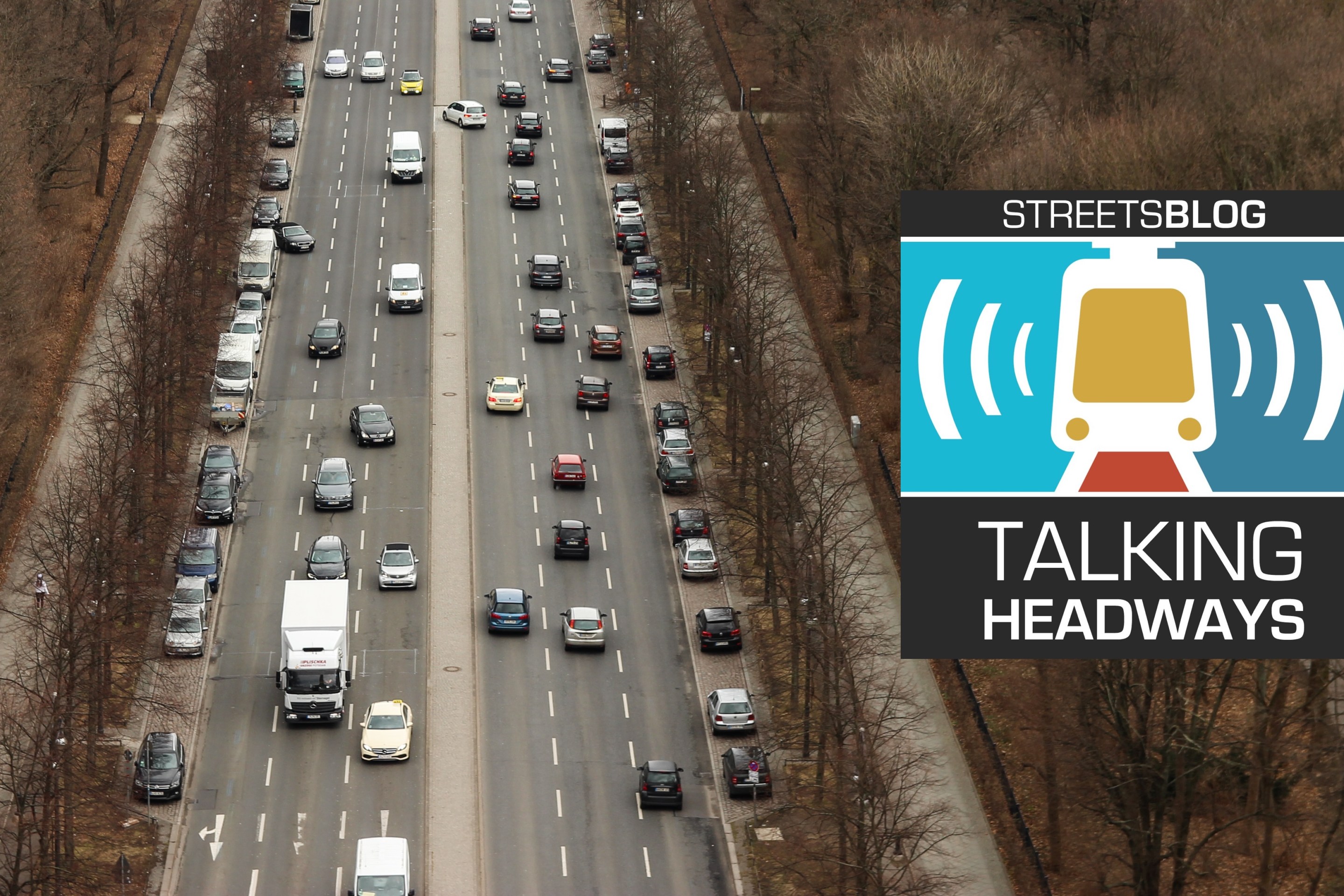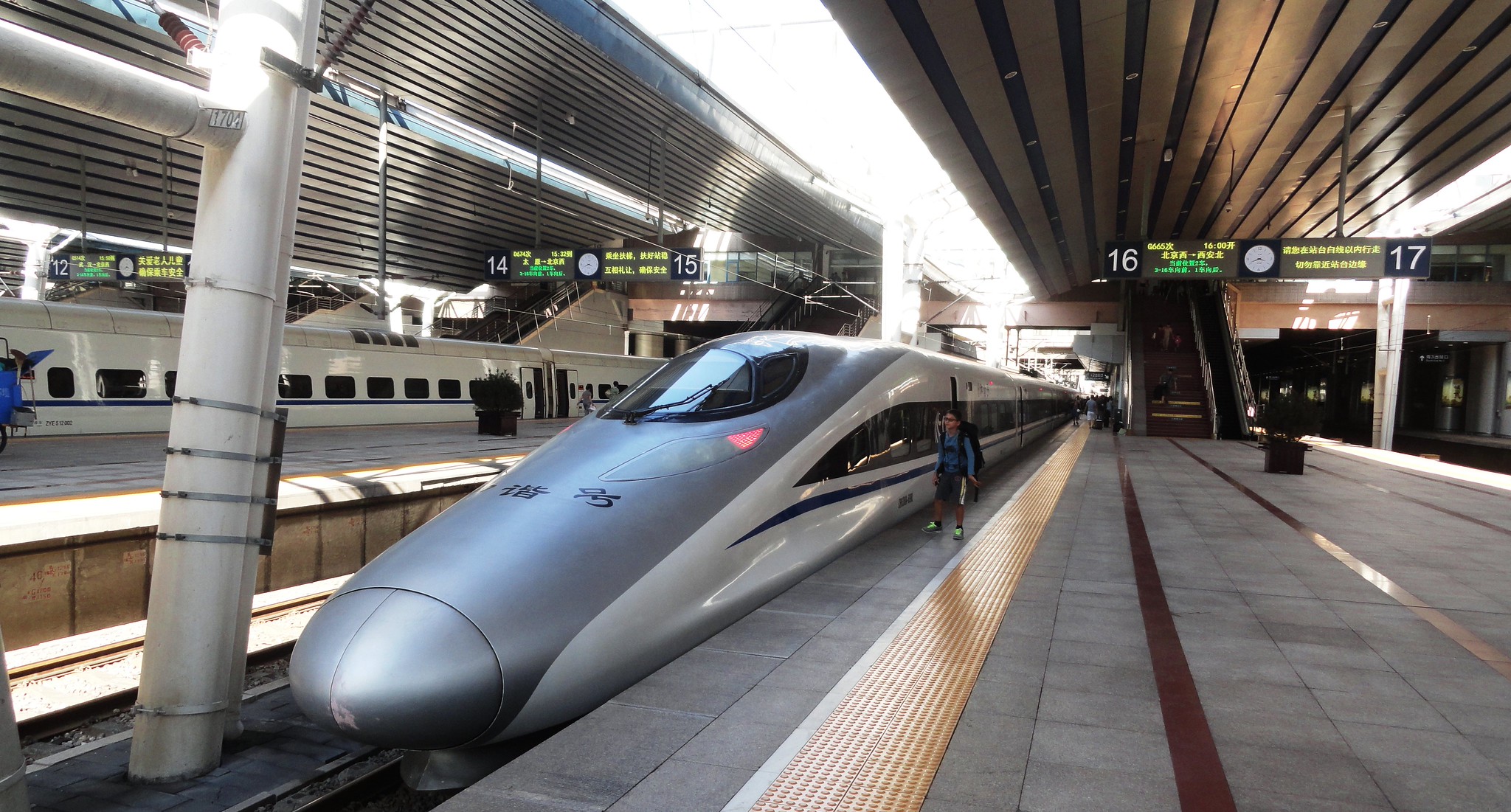 Urban areas have a lot to contribute to the congressional climate change debate. (Photo: SDOT Blog)
Urban areas have a lot to contribute to the congressional climate change debate. (Photo: SDOT Blog)This week, I was fortunate to attend the Open Cities conference in Washington (along with fellow Streetsbloggers Elana Schor and Aaron Naparstek), on the ways in which new media is shaping urban policy.
The takeaway, for me at least, was a clear sense that technology is dramatically changing the lay of the land for local urbanists. Better data (and access to data) are helping to identify potential targets for planning improvements and easier navigation of cities and transit systems. Blogs and social network technologies have allowed urbanists to better communicate with each other, inform the public, and influence local governments.
Rare is the big American city that lacks a vibrant urban blogospheric community.
But there was an odd disconnect at this conference whenever a national policy figure took the podium. Speakers came across as detached and awkward where the web's potential was concerned (Adolfo Carrion) or warm and interested but fundamentally unsure of the best opportunities for engagement (Raphel Bostic).
Whereas New York City Transportation Commissioner Janette Sadik-Khan's talk to the gathering was invigorating because it was clear to all involved how speaker and audience could help each other be effective in achieving common goals, speeches from federal figures landed with the hard thump of uncertainty.
However promising the speakers' expressed goals were, it was less than obvious to all involved how the web might support or influence policy, and how the federal government might deliver tangible results.
I thought of this disconnect as I sat in a meeting on climate policy last night with Oregon Sen. Jeff Merkley (D). In that discussion, it quickly became clear that the messages that are resonating with voters are not related to the economic consequences of warming or the moral case for reducing emissions. The messages carrying the day have very little to do with climate at all.
What works with the American people? A focus on ending dependence on oil and on generating clean energy jobs. Those are the priorities that convince voters to support the passage of a climate bill even after being confronted by an opposition message on the cost, real or exaggerated, of proposed plans.
What these goals translate into, in the mouths of most politicians, and policy wonks, and journalists, is an emphasis on what can be done about the automobile. Merkley, who represents a state containing perhaps the most transit-friendly city in the country and which is home to a company now producing the first American-made streetcars built in decades, didn't mention transit at all until asked about it -- he focused instead on the economic potential in hybrid technologies and electric cars.
Obviously, cars aren't going away any time soon, and it is important and necessary to keep improving the efficiency of the nation's automobile fleet. But this national blind spot where transit is concerned is distressing.
Yes, any climate bill that passes will likely include funding for transit and rail. But given that the biggest selling points of a climate bill are the likelihood that it will reduce American dependence on oil and create green jobs, a major new investment in rail, transit, and cities generally should be given a starring role.
This isn't rocket science. Transit investments are no longer the provenance of the big, old, and dense eastern cities. Metro areas from Norfolk to Charlotte to Houston to Denver are embracing transit. Funds for such investments are oversubscribed.
New money for transit systems could significantly speed the construction of projects currently in the works, thereby pushing forward the time at which development around those systems, perpetually in short supply, can be built. Create more opportunities to build transit-oriented development -- the one kind of housing not oversupplied at the moment -- and you put people back to work.
Additional transit funding allocation could reduce the inclination among city planners to scale back system plans based on current economic conditions. And lest we forget, budget shortfalls amid the recession continue to affect service and threaten transit system jobs. This problem won't go away until something like strong economic growth returns.
Meanwhile, demand for high-speed rail funds is high around the country, and the amounts allocated so far -- while generous relative to what has come before -- are small compared with what it will take to bring functioning systems online. Money for street improvements and new pedestrian and bicycle infrastructure could put people to work almost immediately, in ways that would help reduce transportation costs and emissions.
The obstacle to a greater role for these approaches is largely one of perception. Smart growth and transit are seen as niche solutions -- not something which is likely to be accepted or used by most Americans, who will remain dependent, as ever, on the automobile. But this is where the urban blogging community can be of use.
When you have vibrant communities dedicated to transit investments and better planning in places like Phoenix, Atlanta, and Austin, you have the basis for convincing legislators that these are not fringe policy tools, but rather priorities which should be championed and supported, heavily, at the federal level.
But while urban leaders in cities traditionally wedded to the car are beginning to understand that there is a constituency for a different approach to urban design and transportation, the congressional delegations in those states aren't hearing the message.
To them, the climate bill simply isn't about transportation or urban planning. They're not thinking about improving the bill by increasing the funding for those priorities, and they're not making a decision about whether or not to support the bill on the basis of what they're hearing from local urbanist groups.
I think there has been frustration among urbanists at the way their issues seem to have been sidelined in the Obama administration's first months. With the stimulus law on the books and a federal transportation bill delayed indefinitely, it hasn't been clear to urban advocates how their ideas might be important to the national discussion.
The climate bill is the answer. This is where urbanists can become relevant. The audiences for urban advocacy blogs -- and legislators -- need to hear some important messages. Urban investments can help get us off oil while creating thousands of jobs. A climate bill should make these investments a priority. And passage of the climate bill should be a major priority.
People care about these topics, but for some reason the important connections -- between better urban planning, a greener and more vibrant economy, and climate legislation -- aren't clicking. It's time we made them click.





